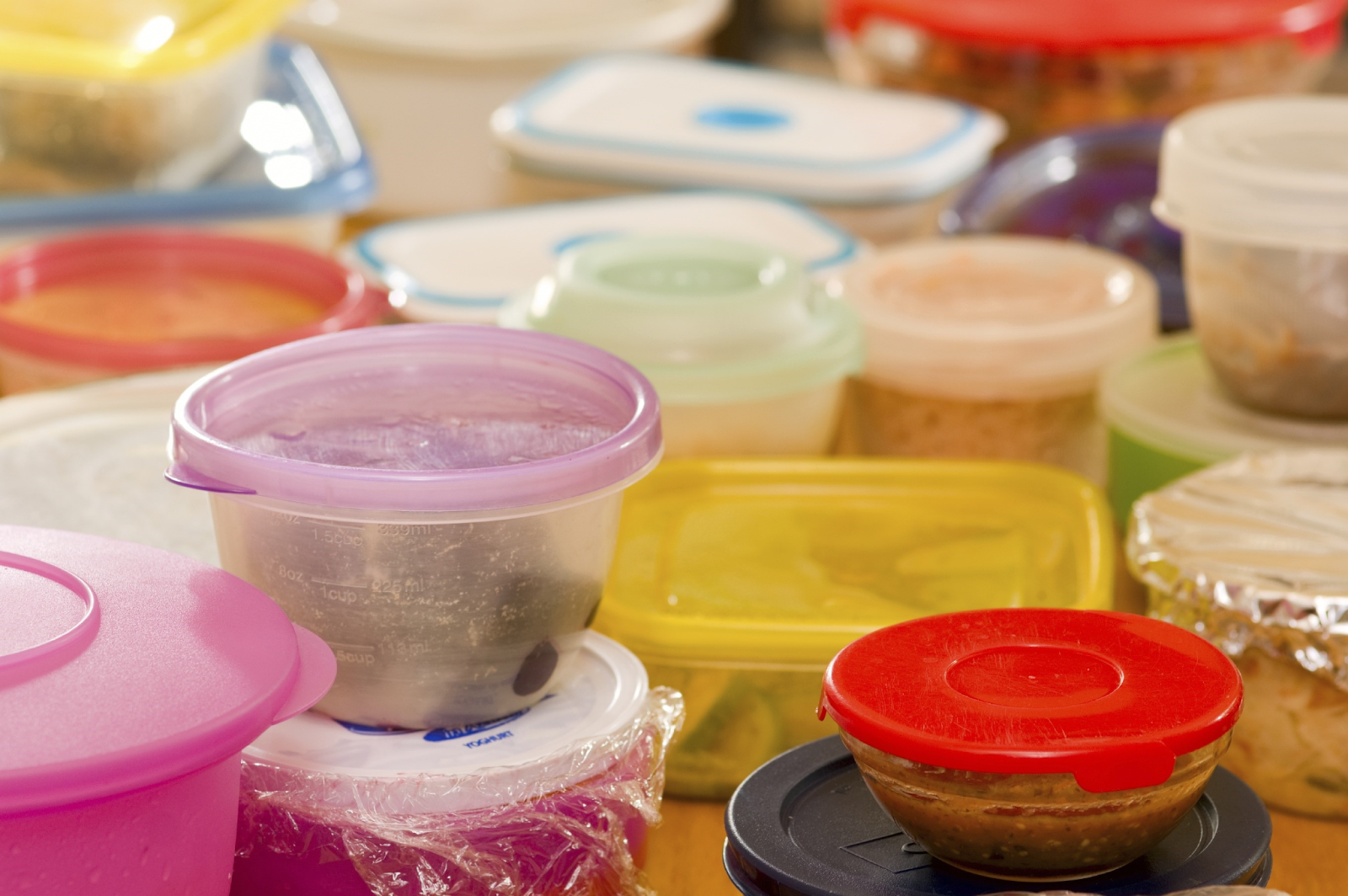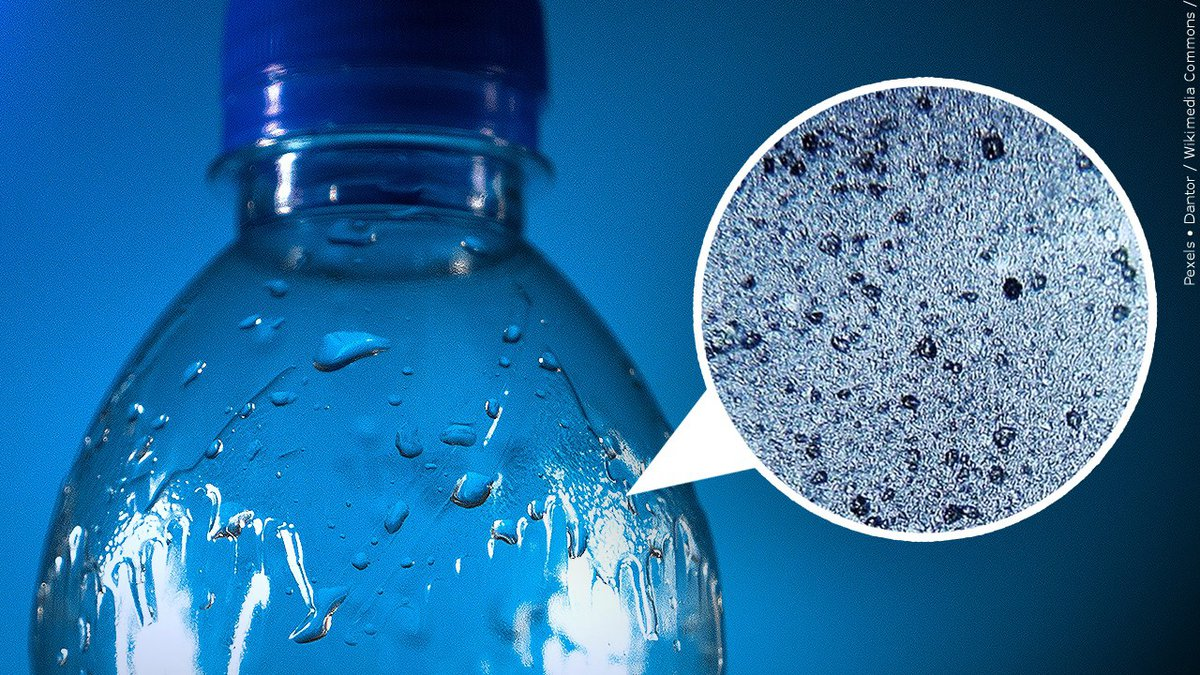Health expert reveals the SCARY TRUTH about plastic containers and bottles — here’s everything you need to know
By
- Replies 7
Storing food in plastic containers has become a common practice worldwide. This is because plastic containers are cheap, lightweight, and durable. Plus, they come in various shapes and sizes, which makes them perfect for storing all kinds of food.
But, did you know that frequent use of plastic containers may lead to increased risks of getting cancer? Health experts even warned about these 'plastic chemicals' ability to alter an individual's DNA.
So, if you're curious to learn more about this shocking fact, then you’ll want to read on.
Preventative health and wellness medical practitioner Dr Zac Turner has recently revealed why using plastic containers and bottles is bad for you.
In his recent article for news.com.au, Dr Turner answered a query from a man who claimed that his vegan girlfriend fought with him over his seemingly 'excessive' use of plastic containers and bottles.
The girlfriend in question said that the man might become infertile if he continued his habit.
The medical practitioner remarked that there's a certain level of truth in the woman's claims, highlighting that plastic containers contain a lot of microplastics.

Health experts warned against plastic containers, emphasising excessive use can lead to some health complications. Credit: The American Cleaning Institute.
For those who don't have any idea about what microplastics are, they are tiny plastics made from petrochemicals taken from oil and gas products and are invisible to the naked eye.
Many of these microplastics are toxic and contain carcinogens that can cause cancer, and some of them are substantial enough to damage DNA.
Microplastics have been shown to affect human cells in lab trials, leading to allergic reactions and cell death.
Some researchers have gone as far as to hypothesise that there's a connection between the 'consumption' of microplastics and infertility, but this hasn’t been confirmed.
Speaking of accidentally intaking microplastics, individuals who are exposed to plastics on a regular basis through the following activities have a higher chance of accumulating organ damage:

Disposable plastic containers are made up of microplastics that can be unintentionally ingested or inhaled by individuals exposed to them. Credit: WECT News via Pexels /Dantor / Wikimedia Commons / CC BY-SA 3.0.
Dr Turner also added that microplastics are 'prevalent in all of our lives' and are nearly impossible to avoid, citing a study that claimed that 90 per cent of table salt is contaminated with microplastics.
Additionally, he discussed research on microplastics in Australian homes, revealing that 42 per cent of the dust collected contained microplastics.
So how can we stay as far away from microplastics as we can? Here are Dr Turner's advice:
While it can't be denied that most people take the danger of microplastics for granted, these hazards may be far greater than previously thought.
We encourage our members to be mindful of their plastic use as it will not only be beneficial to your health but also the environment. As an alternative, you can use glass containers and jars. If you have comments regarding this issue, don't hesitate to write them down in the comments section below. We’re interested in hearing what you think and how you’ll be cutting down your plastic use. Stay safe, folks!
But, did you know that frequent use of plastic containers may lead to increased risks of getting cancer? Health experts even warned about these 'plastic chemicals' ability to alter an individual's DNA.
So, if you're curious to learn more about this shocking fact, then you’ll want to read on.
Preventative health and wellness medical practitioner Dr Zac Turner has recently revealed why using plastic containers and bottles is bad for you.
In his recent article for news.com.au, Dr Turner answered a query from a man who claimed that his vegan girlfriend fought with him over his seemingly 'excessive' use of plastic containers and bottles.
The girlfriend in question said that the man might become infertile if he continued his habit.
The medical practitioner remarked that there's a certain level of truth in the woman's claims, highlighting that plastic containers contain a lot of microplastics.
Health experts warned against plastic containers, emphasising excessive use can lead to some health complications. Credit: The American Cleaning Institute.
For those who don't have any idea about what microplastics are, they are tiny plastics made from petrochemicals taken from oil and gas products and are invisible to the naked eye.
Many of these microplastics are toxic and contain carcinogens that can cause cancer, and some of them are substantial enough to damage DNA.
Microplastics have been shown to affect human cells in lab trials, leading to allergic reactions and cell death.
Some researchers have gone as far as to hypothesise that there's a connection between the 'consumption' of microplastics and infertility, but this hasn’t been confirmed.
Speaking of accidentally intaking microplastics, individuals who are exposed to plastics on a regular basis through the following activities have a higher chance of accumulating organ damage:
- Storing and heating food in plastic takeaway containers - the heat can leach away the microplastics and mix them with your food
- Drinking from a disposable plastic bottle - similarly, water can 'corrode' the microplastics from the bottle so the more you refill and drink water from plastic bottles that were supposed to be thrown away, the more you ingest these tiny polymers.
- Exposing your drinking plastic bottles to any heat source such as the sun - similar explanation to the first two items, the microplastics that were ticked off from the walls of the bottles can mix with your drink.
Disposable plastic containers are made up of microplastics that can be unintentionally ingested or inhaled by individuals exposed to them. Credit: WECT News via Pexels /Dantor / Wikimedia Commons / CC BY-SA 3.0.
Dr Turner also added that microplastics are 'prevalent in all of our lives' and are nearly impossible to avoid, citing a study that claimed that 90 per cent of table salt is contaminated with microplastics.
Additionally, he discussed research on microplastics in Australian homes, revealing that 42 per cent of the dust collected contained microplastics.
So how can we stay as far away from microplastics as we can? Here are Dr Turner's advice:
- Eat fresh food and avoid takeaways that use plastic containers.
- Reheat your food in non-plastic containers.
- Purchase produce from farmers' markets and local shops, ensuring that you're nabbing fruits and vegetables with the least amount of plastic packaging.
- Ditch carpets that can collect dust for hard surfaces, such as polished wood floors, instead.
- Reduce dust levels in your home by vacuuming weekly.
- Change your single-use plastic bottle for a container that is either made of metal, more durable plastic, or smash-proof glass.
While it can't be denied that most people take the danger of microplastics for granted, these hazards may be far greater than previously thought.
We encourage our members to be mindful of their plastic use as it will not only be beneficial to your health but also the environment. As an alternative, you can use glass containers and jars. If you have comments regarding this issue, don't hesitate to write them down in the comments section below. We’re interested in hearing what you think and how you’ll be cutting down your plastic use. Stay safe, folks!







